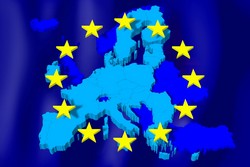Trade insights to help the EU look east
The EU’s eastern neighbours offer enormous potential in advancing trade. Recent and ongoing trade agreements have prompted EU officials to investigate the expected impact of these trade relationships and support the bloc’s eastern neighbours in realising their untapped potential from an agro-ecological perspective. This was the objective of the EU-funded project AGRICISTRADE (Exploring the potential for agricultural and biomass trade in the Commonwealth of Independent States). Representing a consortium of organisations from both the EU and its eastern neighbours, the project focused particularly on the production and trade potential of eight eastern neighbour countries of the EU. These were Armenia, Azerbaijan, Belarus, Georgia, Kazakhstan, Moldova, Russia and Ukraine. In the last few years tension between the EU and Russia over Ukraine, followed by EU-Russia trade sanctions, has held back east-west integration. Focusing on the Russian-led Commonwealth of Independent States (CIS), the project explored the east’s agriculture policy and trade potential. It looked at how the CIS could compete in agri-trade internationally and what barriers hindered it. Specifically, the project team benchmarked performance of the agri-food chain in the CIS against EU producers and built a toolbox to generate trade projections for the region. It outlined a comprehensive database and policy measures to support the analysis of future agri-trade in the CIS. The project’s research revealed that large areas of abandoned land and substantial yield gaps underline untapped potential for several reasons, such as farmers being poorly integrated into the supply chain. The findings also showed that Russia and Ukraine will produce, consume and export more cereals and oilseeds, and that they will import less meat. Reducing trade costs and redressing isolationism would help promote trade and bring benefits to the CIS region. In addition, AGRICISTRADE articulated several scenarios that underline the benefits that could emerge, for example, in the case of deeper integration or liberalisation. Its policy recommendations can help CIS countries increase land and labour productivity while fuelling competitiveness. Project guidelines on improving human capital and public/private investments in the field will contribute to better east-west trade cooperation.
Keywords
Trade, AGRICISTRADE, Commonwealth of Independent States, agriculture, isolationism

